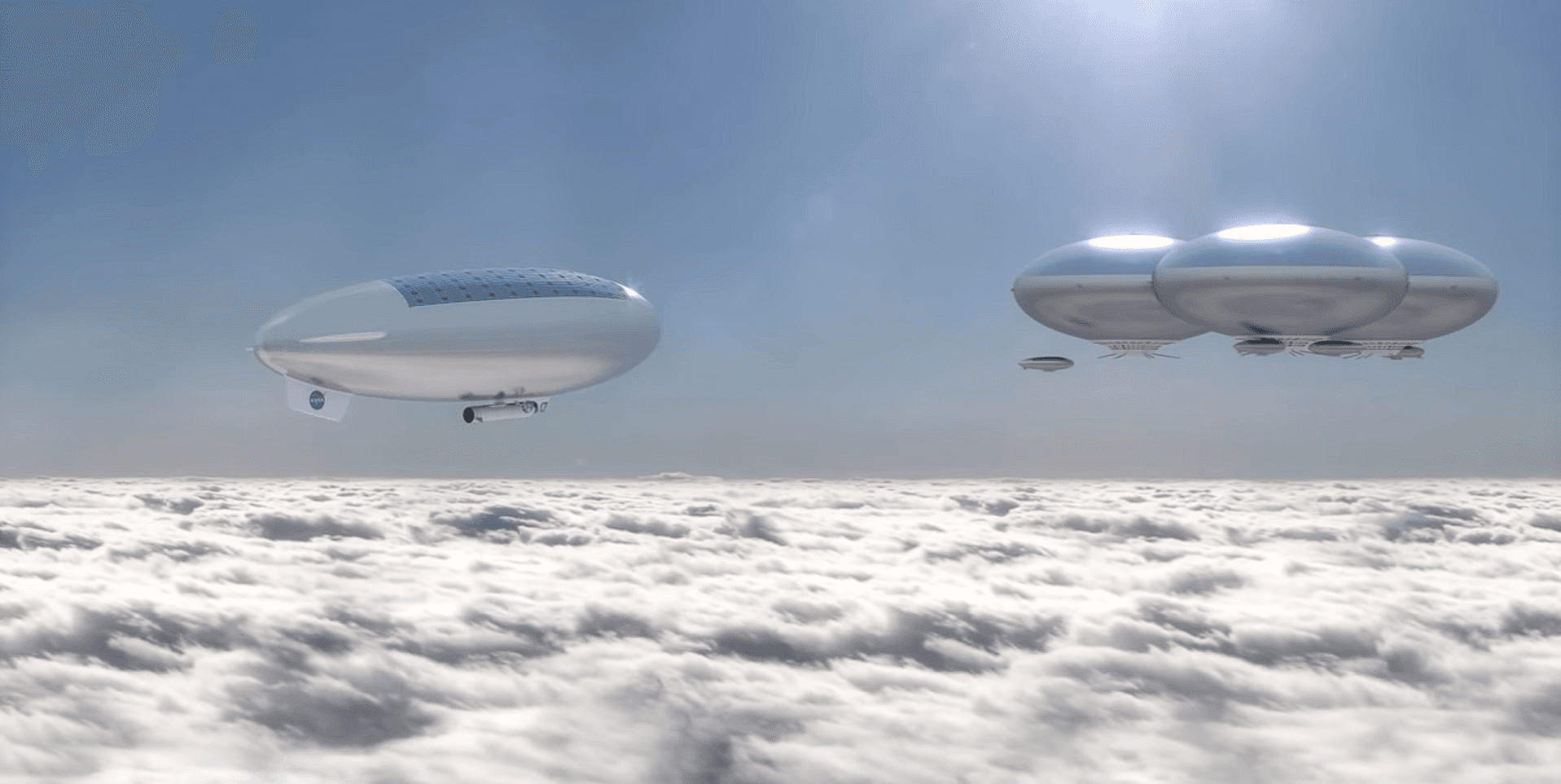Why Venus now?
Reading Time: minute
Audiobook: 2 minutes

Basics
Didn't we rule out Venus before? Yes. And no. Not quite.
We have ruled out colonizing the rocky soil of Venus, which I will continue to rule out. When looking at Venus from a more realistic angle however, the Venus Cloud Cities might be a promising concept that lives up to it's name.
In the higher atmosphere of Venus, the air pressure is approximately the same as on earth (1 bar) and the temperature settles approximately between 0°C and 50°C. Gravity on Venus is 0.9 times the gravity of Earth and the upper atmosphere contains carbon, sulfur, nitrogen, oxygen and hydrogen - all important substances for the sustainability of carbon based lifeforms. Since Cloud Cities would obviously be built in or preferably above clouds, their location would be ideal for collecting solar energy, being unbothered by cloudy weather conditions that would mitigate energy collection from solar panels on Earth.
Location
It's coming even better. Venus is significantly closer to the largest asteroids in our solar system than earth: Ceres and Vesta. Using so-called "minimum energy trajectories", we could save about 47 days (or 0.13 years) when flying to Vesta from Venus rather than from Earth and 51 days (or 0.14 years) when flying to Ceres.
Said asteroids are rich of precious and rare metals, realistically rendering them a prime target for Asteroid Mining by private companies in the next couple of decades. Not only would they be a profitable target to mine, but they would also supply us with resources that would be necessary to have anyway to be able to expand out from our home planet. For example, an object with a diameter of just 1 kilometer could meet the metal needed by our industry for decades.
Learnings
Now that we researched a bit more about Venus and found out that actually, if executed correctly, it could be a great target for future colonization, why don't we start with Venus? Well, let's find out in the next chapter.
Additional Resources
- The NASA has an overview page for Venus, containing additional information that could be interesting.